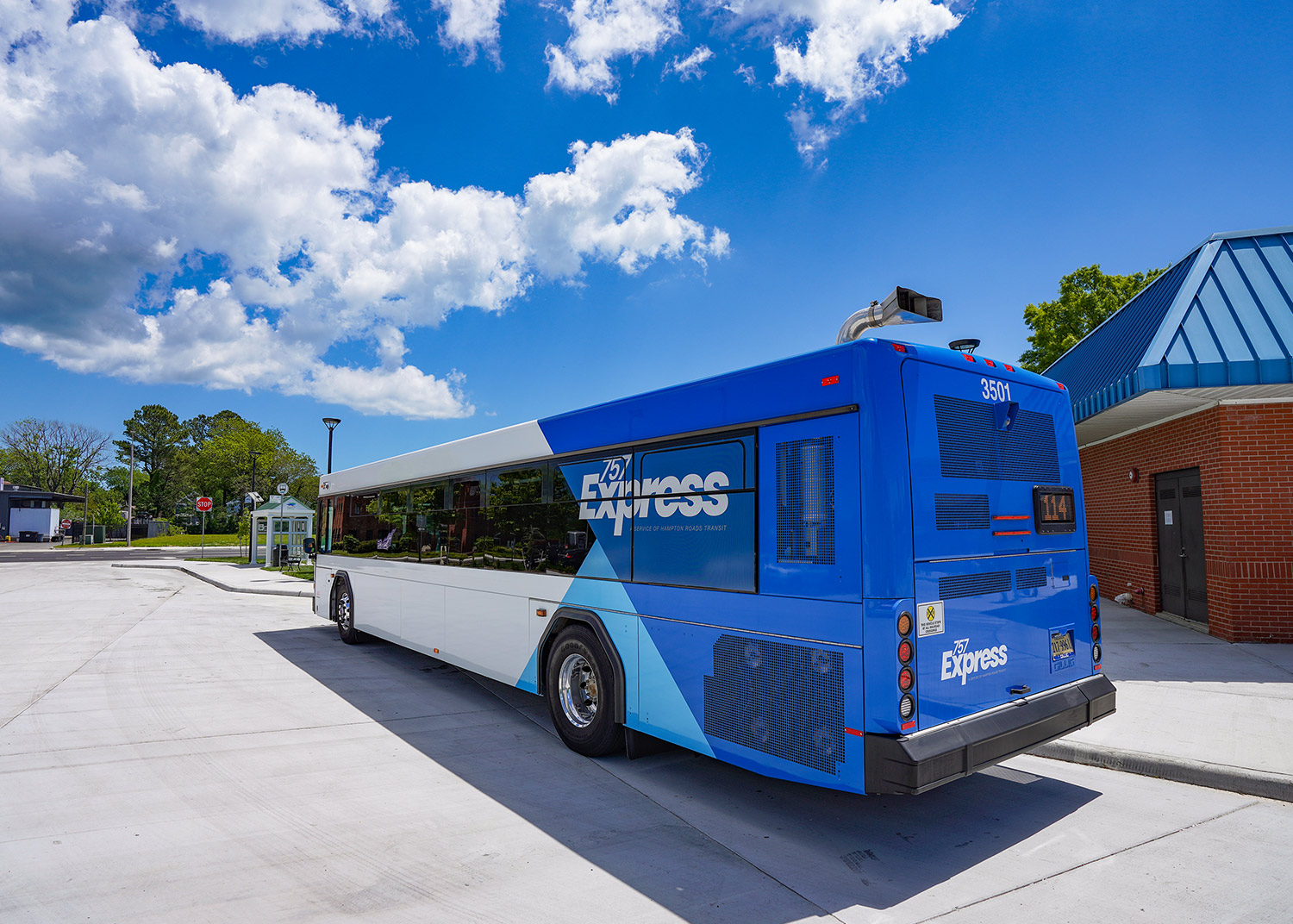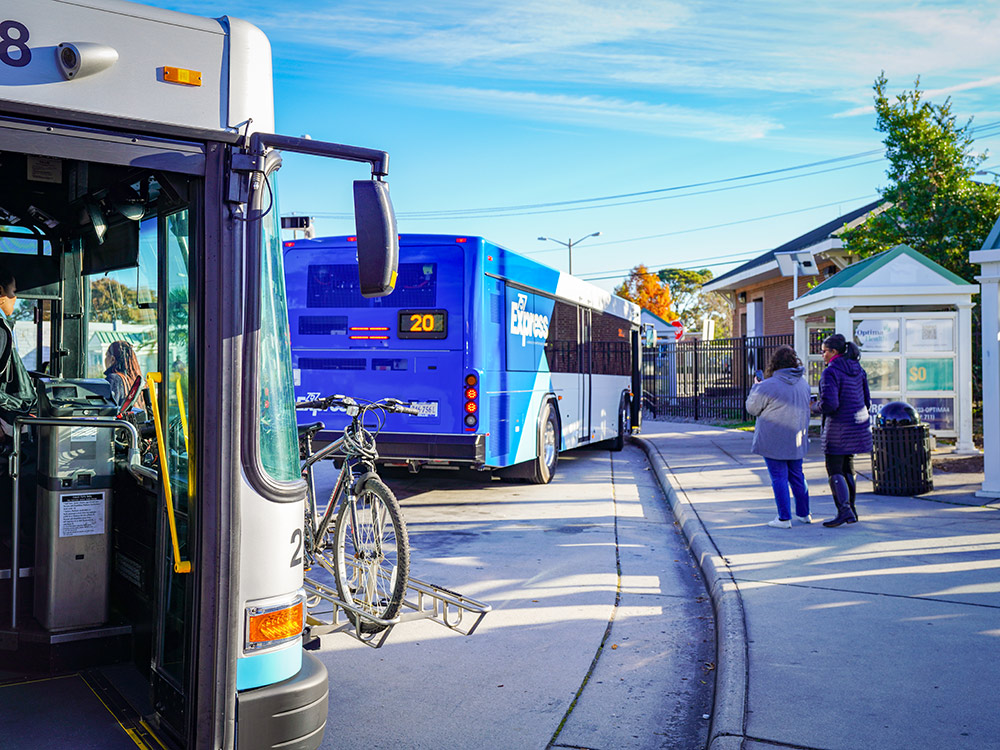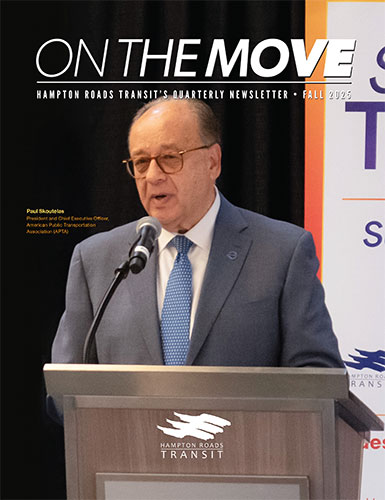Who Decides Bus Stop Times? Here’s How Schedulers Balance Efficiency & Operator Well-Being
Public transit agencies live and die by their schedules. They are as important to passengers as they are to the person behind the wheel of a bus.
It takes skill to coordinate hundreds of operators across dozens of routes on any given day. Add to that the battle to provide work-life balance to a workforce that’s on the job nearly 24/7 and it becomes a monumental undertaking.
“If you don’t have good schedulers, you don’t have a public transit system that people want to use,” says Ray Amoruso, Chief Planning and Development Officer at Hampton Roads Transit.
One of the biggest challenges facing public transit agencies today is a shortage of qualified operators. Some would argue it’s second only to the attrition of qualified schedulers, a role that is often underestimated and undervalued. “It wouldn’t matter if an agency had enough operators because, in actuality, you have nothing if you don’t have good schedules,” says Amoruso.

Being a scheduler is an art form. And as with any art, it takes years to master. Some worry it’s quickly becoming a lost art – another human task handed over to artificial intelligence. The most experienced schedulers are retiring, and they are not being replaced. HRT currently has three schedulers on staff with more than seven decades of experience between them. However, two of them are on the cusp of retirement. Now, in addition to their role as schedulers, they have taken on a new task: mentoring the next generation of HRT schedulers. They are working hard to make sure all the knowledge they’ve obtained is transferred to the next generation.
The need for continuity became more apparent following a recent survey of HRT’s bus operators. The survey identified several areas of concern all related to quality of life. HRT set out to address those concerns within the confines of its Collective Bargaining Agreement, making changes in some key areas – improvements that could not have been made without a seasoned scheduler.
Using special software, schedulers coded in all the parameters of the agreement, plus the financial limitations and obligations of each member city. While the software spits out the most cost-effective schedule, it doesn’t take into consideration the operator’s quality of life. “That’s why it’s important to have an experienced scheduler who can personalize it,” says Amoruso. “If you just rely on the software… it’ll come up with an efficient route,” says Amoruso. “But the quality of life of the operator decreases.”
One of the issues bus operators wanted addressed was consistent scheduling. “Even in an industry like public transit, which operates nearly round-the-clock, employees want some level of predictability,” says Vincent Jackson, Director of Service Planning & Scheduling. Bus operators have families and children, school functions to attend, and holidays to celebrate.
According to Amoruso, as of November 2023, 88 percent of all weekday duty assignments are now straight runs. Meaning fewer operators are working split shifts. Jackson says this is the highest rate in the nearly 20 years he’s been doing scheduling at HRT and it’s a “big accomplishment.”

Another win for the agency was being able to provide more consistent break times.
For help with this HRT brought in a consultant who looked at six to 12 months’ worth of data on every route in the system. They were able to identify inconsistencies between scheduled runtimes and actual runtimes. This allowed schedulers to adjust runtimes on some routes, helping with passenger expectations and providing the operator a more reliable window to take a break.
“Now that we can guarantee they’re going to get to the end of the line on time,” says Jackson, “we can give them additional recovery time.”
Jackson says of all the things they’ve been able to improve for operators this is probably the most important one. “When you’re working, you’re able to work safely, without performing tricks to make schedule,” says Jackson.
There are two schools of thought when it comes to producing schedules. Let a technician do it. Or an artist. Jackson sees himself as an artist.
“An artist can manipulate a schedule and create better pieces of work for the operator,” says Jackson. That’s what the team at HRT was able to do with the survey results; take the needs of its operators, combined with the needs of the agency, and create a better work-life balance.
As artificial intelligence becomes more widely used and accepted, Amoruso points out, “the solution isn’t always smart software.” Especially at a large agency like HRT our bus operators want to know that the staff creating schedules understand their challenges outside the workplace and can build schedules that align with their non-work life.
Care that requires skill, empathy, and artistry you’ll only find in a professional scheduler. In addition, Jackson says the most important quality a scheduler can bring to the table is “passion.”
“The product that we deliver is the service,” says Amoruso. “Our customers will only use it if it works for them. But at the same time, we have to ensure our operators happy or there won’t be a product to deliver.”





